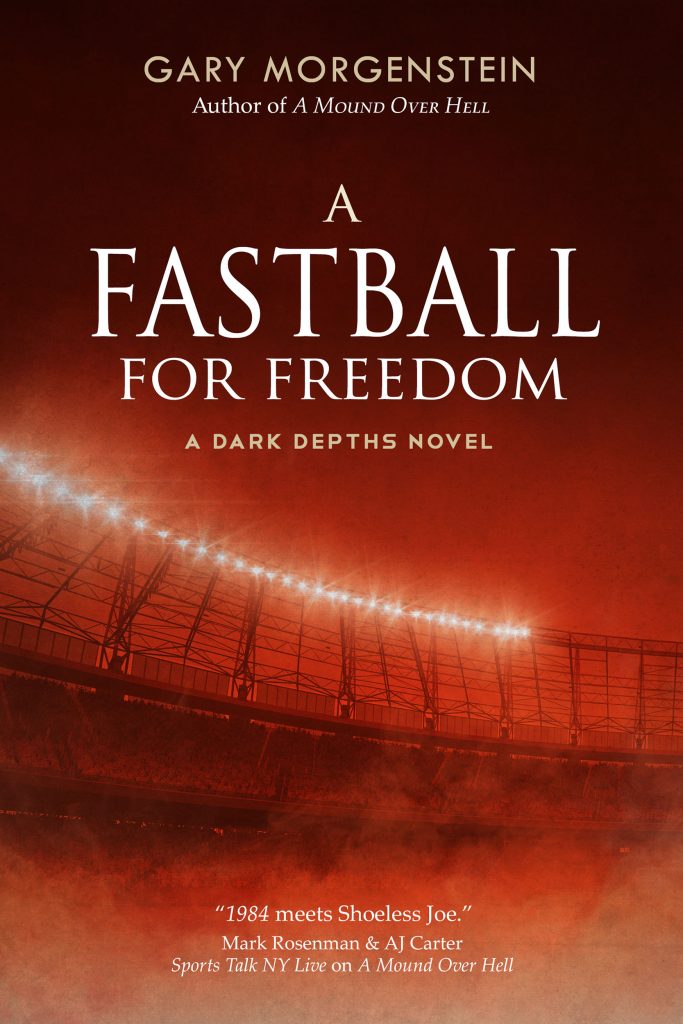When I approach a sequel to a great book,  I usually experience the apprehension that it won’t measure up. So when Fastball for Freedom came out, following the magnificent novel A Mound Over Hell, I approached it with some concern. Well, there was no need to worry – this book is even better. And it is also significant now when we actually live in what seems to be the perfect setting for a dystopian novel. As they strive to survive and perhaps heal a world sunk into hatred, divisiveness, chaos, and anarchy, the sympathy I felt for the protagonists was much the same as the concern I have for our own citizens. It was impossible not to realize that the warning given to us in the first book, the threat of our collapsing culture, is simultaneously taking place in Fastball and our own lives. We are disrupted by what is politely called a pandemic, but let’s face it, it is a real historic-proportion plague. We are also threatened by the three worldwide specters of food insecurity, violence, and failing governments. Reading Fastball felt as if Gary Morgenstein acted as a visionary who is straddling present and future.
I usually experience the apprehension that it won’t measure up. So when Fastball for Freedom came out, following the magnificent novel A Mound Over Hell, I approached it with some concern. Well, there was no need to worry – this book is even better. And it is also significant now when we actually live in what seems to be the perfect setting for a dystopian novel. As they strive to survive and perhaps heal a world sunk into hatred, divisiveness, chaos, and anarchy, the sympathy I felt for the protagonists was much the same as the concern I have for our own citizens. It was impossible not to realize that the warning given to us in the first book, the threat of our collapsing culture, is simultaneously taking place in Fastball and our own lives. We are disrupted by what is politely called a pandemic, but let’s face it, it is a real historic-proportion plague. We are also threatened by the three worldwide specters of food insecurity, violence, and failing governments. Reading Fastball felt as if Gary Morgenstein acted as a visionary who is straddling present and future.
Of course, the book is not just a dire warning or a thought-provoking philosophy. It presents us with a plot that is breathtaking by its speed and high adventure, and with engaging characters whose actions are real and immediate. You can’t put it down, and you are happy that it has a sufficient length to allow the scope of the Dickensian panorama. And these characters are growing and developing. The loveable protagonist, Puppy, the unaccountable and somewhat mysterious Elias Kenuda, little Clary, and my particular favorite, the unpredictable but still so trustworthy and resourceful Zelda, are just a few of the people who are becoming as close and familiar to us as our friends and neighbors. We care about them.
Another point I was particularly interested in is Gary Morgenstein’s approach to artificial intelligence. The other day I saw a viral video of three robots – two humans and one dog – which was made to show how cute these machines can be as they were dancing to some modern music. I was not amused. A year or so ago, I saw a novel type of robot, called Sophia, who was as close to being a beautiful female celebrity as you can wish and clearly showed signs of acting as a sex toy. Fortunately, it turned out the robot was fake and had no artificial intelligence capabilities at all. But all of these attempts are trying to prepare us for the lovely side of AI. On the other hand, Fastball is realistic about how much trouble can occur by displacing humans in favor of automation. It does not employ the 1950s’ “robots are taking over the world” simplistic view; it is much too sophisticated for that. Instead, it examines the relationships, threats, and opportunities of co-existence.
I am delighted by the Dark Depths’ saga’s successful continuation and look forward to Book Three. The books should be followed in sequence, and I promise you a wonderful reading experience.
A Fastball for Freedom hits the shelves late March and is currently available for pre-order.
A special thanks goes out to Ilil Arbel for being our guest reviewer!
Ilil Arbel is the author of several books, including Maimonides: A Spiritual Biography (Crossroad Publishing) and Witchcraft (FFE Publishing), and a contributor of Judaic Myths and Folktales to the award-winning Encyclopedia Mythica. Her latest project is co-authoring a new book: The Dictionary of Subjects and Symbols in Jewish Visual Culture with the noted Israeli art historian Dr. Alec Mishory (Brill Publishing). Ilil has earned a Ph.D. in mythology and folklore; she lived and studied in Tel Aviv, Paris, and New York, and currently resides in Manhattan.

